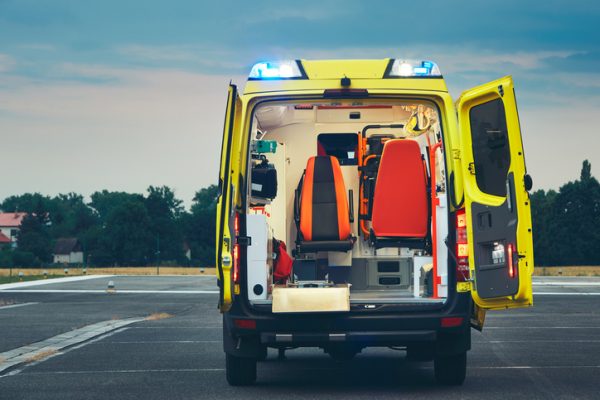
Pittsburgh-based UPMC and UPMC Health Plan have launched an initiative to recruit, train and employ first responders from economically disadvantaged communities, many of whom have lost their jobs and are experiencing income insecurity amid the Covid-19 pandemic.
The program, dubbed Freedom House 2.0, will provide emergency medical services training in two, 10-week sessions to individuals from disadvantaged communities. Recruiting efforts will focus on those between 18 and 24 years and those who have lost jobs as a result of the Covid-19 pandemic, Dan LaVallee, director of the UPMC Center for Social Impact, said in a phone interview. Participants will have to meet the state’s eligibility criteria for becoming an EMS provider, which includes having a high school diploma or GED.

With the Rise of AI, What IP Disputes in Healthcare Are Likely to Emerge?
Munck Wilson Mandala Partner Greg Howison shared his perspective on some of the legal ramifications around AI, IP, connected devices and the data they generate, in response to emailed questions.
There are two overarching goals of the initiative, Dr. Dan Swayze, vice president of community services, UPMC Health Plan, and director of operations, UPMC Innovative Homecare Solutions, said in a phone interview.
First, the initiative aims to create an EMS training program that can more effectively respond to 911 calls today, which often arise from social determinants of health issues rather than true medical emergencies. In addition to providing EMS training, the program will teach participants how to identify and help address social determinants of health.
“It’ll teach them how to assess [social determinants of health], how to engage somebody in those discussions using techniques like motivational interviewing, it’ll go much deeper into mental and behavioral health comorbidities that these patients often experience,” Swayze said. “We give [the participants] a very robust look at all of these other determinants of health, and most importantly we say, ”look, the emergency department is not going to solve those kinds of problems… so let us teach you how to get people referred into the appropriate system of care that is set up to be able to manage those kinds of needs.'”
The second goal is to create stable career paths and provide an entry point into healthcare that is accessible for those from low-income communities.
“[The EMS role], in particular, is a great entry point for those that want to get into healthcare but do not necessarily believe they could succeed in other entry points,” Swayze said. “So, those that are interested in healthcare but may not have the grades to get into medical school or [access] some of the more traditional routes to enter the healthcare workforce.”
“There is a persistent need for EMS providers in all parts of the country. They are chronically listed on the workforce shortage lists in many states, including in Pennsylvania. So, there is a clear need they can fill by doing this [program],” he added.
The program is free for participants and provides them with financial support, including a monthly stipend. UPMC will pay for participants’ testing and certification fees, and those who graduate from the program will be guaranteed an interview with UPMC and other job placement support.
But just financial support is not enough — participants also need life skills to successfully seek employment. Program participants will learn how to write resumes and dress for job interviews, along with the EMS training they will receive.
Further, the program aims to support the economic recovery of communities devastated by the Covid-19 pandemic. Data shows that people of color and low-income communities have been disproportionately affected both by the disease itself as well as the economic strain resulting from the crisis.
“Last week, we had 40,000 initial jobless claims in Pennsylvania — that was the highest since July, I think it was,” UPMC’s LaVallee said. “And over 850,000 nationwide. I mean, it is continuing at a pace I think that few expected. So, it’s our time to make a difference.”
The Freedom House 2.0 initiative is funded by a $235,000 grant from Partner4Work, the public workforce investment board for Allegheny County. UPMC will also partner with the Neighborhood Resilience Project, a community-based organization and health clinic, to facilitate the program.
Photo credit: Chalabala, Getty Images














